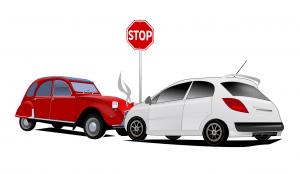Seniors are living longer, healthier, and more active lives. Because of this, more seniors are on the road driving, and research even shows that they are crashing less often in comparison to 10 years ago. Aging does not mean you should no longer be behind the wheel, but it is important to make sure your health allows it. There comes a point when your reflexes slow down, and your vision deteriorates. Giving up your keys may become a reality. This new reality means less independence, which is not easy for anyone.
There are some warning signs and conditions that determine when it is time to reassess driving

. Sometimes, you need a little nudge from concerned family members to realize that it may be time to stop driving. At the end of the day, think of it as providing safety not only for yourself but for other drivers.
Conditions That Affect Driving
Some health conditions and medications can hinder someone’s ability to drive no matter their age. Make sure to talk to your doctor about the potential side effects of medications before you drive with them. This includes if you have or had:
- Dementia or Alzheimer’s
- Arthritis
- Stroke
- Hearing or vision problems such as cataracts and glaucoma
- Diabetes
- Parkinson’s
- Sleep Apnea
- Sleeping pills, narcotics for certain conditions, and anti-anxiety medications.
Warning Signs It Is Time To Reassess Your Driving
Some seniors will exhibit warning signs while driving, and you or a loved one may have noticed some already. These signs include:
- If you have been issued two or more traffic tickets in the past 2 years.
- If you have been involved in 2 or more collisions in the past 2 years. This includes close calls, and “near-misses.”

If you have had some “close calls” or multiple accidents within a year, then it may be time to reassess your driving. - Running a red light or stop sign.
- Routinely becoming lost, especially in familiar areas.
- Inability to recognize the right of way.
- Failure to yield or stop at traffic lights or when prompted by signs.
- Find yourself speeding or going too slow.
- Straddling lanes or weaving between lanes.
- Family members voice their concern for your safety or do not feel safe as a passenger.
When Loved Ones Have The Talk
Discussing driving, and when it may be time to limit, or stop it altogether is stressful and hard. For loved ones who decide to have the conversation, approach it with care. Understand that there are many difficulties your family member is facing. Research shows that half of married drivers prefer to hear about these concerns from their spouse, and those that live alone prefer to hear it from their adult children, doctor, or close friend. When you have a conversation with your loved one, be encouraging and supportive. To a senior, it is a loss of freedom, and your goal should feel as if you are making the decision together. Make sure you focus that you are coming from a place of care and sincerity, not contempt. Here are a couple of suggestions on how to approach it,
- Ask them specific questions about their personal health and how they feel when driving. These questions can include “Have you noticed any physical changes from your medications?” “Have you visited the eye doctor lately, and what was the outcome?”
- Ask what challenges they have faced when driving alone. These questions can include from personal experiences when in the car with them such as “I realized you rolled through the stop sign. Have you had any concerns about driving?”
- Schedule an appointment with their doctor. Stress the fact that you want them to be safe, and drive safely. Their doctor will run tests and evaluate if their medication takes a toll on alertness and response times.
- Do NOT be confrontational It will only cause them to be defensive.
- Remain calm, especially if your loved one becomes angry. It is normal for them to feel upset and experience a range of emotions when they are told they may be an unsafe driver.
- Focus on the safety of others. Ask your parent if they feel completely safe driving with their grandchildren in the car. Suggest offering their car to a loved one, such as gifting it to their granddaughter who could use it when she goes to college.
- Come to an agreement. If your parent still feels strongly about not giving up their driving ability, offer some suggestions/ a compromise. Some circumstances would be to avoid driving at night and in bad weather. Drive only in familiar places close to home or stay off the highway. Try to avoid as many distractions as possible when driving such as having a conversation or listening to music.
- Offer alternatives! This will help your loved one accept it more because it means that they will not lose their ability to travel. Family and friends can set aside time to drive them to places. There are Paratransit for the elderly, or county transportation services for seniors. There are grocery and food delivery services that can

When you have the talk with your loved one, make them understand you’re coming from a place of love, and remain calm. Come to an agreement if possible. deliver to their door.
After driving for such a long time, it becomes second nature, so it’s not easy to hear that it may be time to stop. The transition may be difficult, but there are alternative transportation methods you can choose from. It is especially important to hear out your spouse or loved one if they have concerns. It comes from a place in regards to safety for you, your grandchildren, and others on the road. For those who are concerned for your loved one, remember to approach the subject with respect and patience. Do not be confrontational, remain calm, and come to an agreement with your loved one. For seniors that are going through this, remain open-minded. It may take a while to adjust to life without driving, but it can be done. If you feel like you can not completely give it up, then at least consider seeing your doctor and come to a compromise of driving in safe conditions. However, if you have experienced any warning signs or have had some close calls, then it is time to rethink driving. No longer driving does not mean you have lost your independence because there are other ways to get around. It means you took the approach to consider your safety and others before a crisis occurs.
